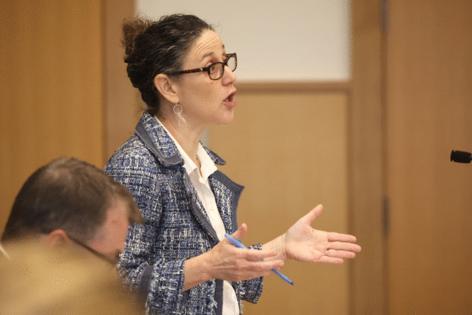100+ retired Massachusetts judges call for higher pay for striking bar advocates
Published in News & Features
BOSTON — More than 100 retired Massachusetts judges have signed a letter calling for “fair pay” for attorneys who take on indigent criminal defendants as those lawyers continue to not work in an appeal for higher pay.
“We, retired Massachusetts judges, call for fair pay for bar advocates,” the open letter states.
Those judges, according to the letter, include those who served on all seven types of the Massachusetts Trial Court system as well as the federal court in Boston.
The signatories as of Wednesday made for 2 1/2 pages of single-spaced standard copy pages — and there could be more to come.
“Actual count exceeds 100 but is not updated. Listed names, however, are the real total,” a footnote to the document that included 106 names states. One of the signatories told the Boston Herald that more could sign on.
The letter comes just after more than 100 cases were dismissed in the Boston Municipal Court system Tuesday due to a protocol ordered by the state’s highest court to deal with the major backlog of unrepresented criminal defendants due to the ongoing work stoppage. More such dismissals will come throughout Suffolk and Middlesex counties until the stoppage ends.
Bar advocates, who are private attorneys who take on indigent defendants — or those unable to afford their own counsel — and are paid for their work by the state, stopped work in those counties at the end of May in a call for a significant increase in their pay.
These attorneys represent about 80% of indigent defendants whereas the the Committee for Public Counsel Services, or CPCS, the public entity that organizes the system, employs salaried attorneys who represent the 20% of remaining indigent defendants
Supreme Judicial Court Justice Dalila Argaez Wendlandt ordered July 3 that the Lavallee Protocol take effect.
The two prongs of this protocol, which is named after a 2004 state case that also dealt with a backlog of criminal defendants without representation, are that unrepresented defendants be released from detention after seven days and that defendants whose cases have gone unrepresented for 45 days must have their cases dismissed.
The seven-day detention rule saw results immediately, as the work stoppage had gone on significantly longer than a week by the time of the order. Tuesday was the first day of hearings to dismiss cases that had reached the 45-day threshold.
BMC Chief Judge Tracy-Lee Lyons dismissed 125 cases, by the Suffolk District Attorney’s office count, on Tuesday after lawyers could not be secured. Those cases were dismissed “without prejudice,” which means that prosecutors can bring them again once attorneys are working again.
_____
©2025 MediaNews Group, Inc. Visit at bostonherald.com. Distributed by Tribune Content Agency, LLC.







Comments